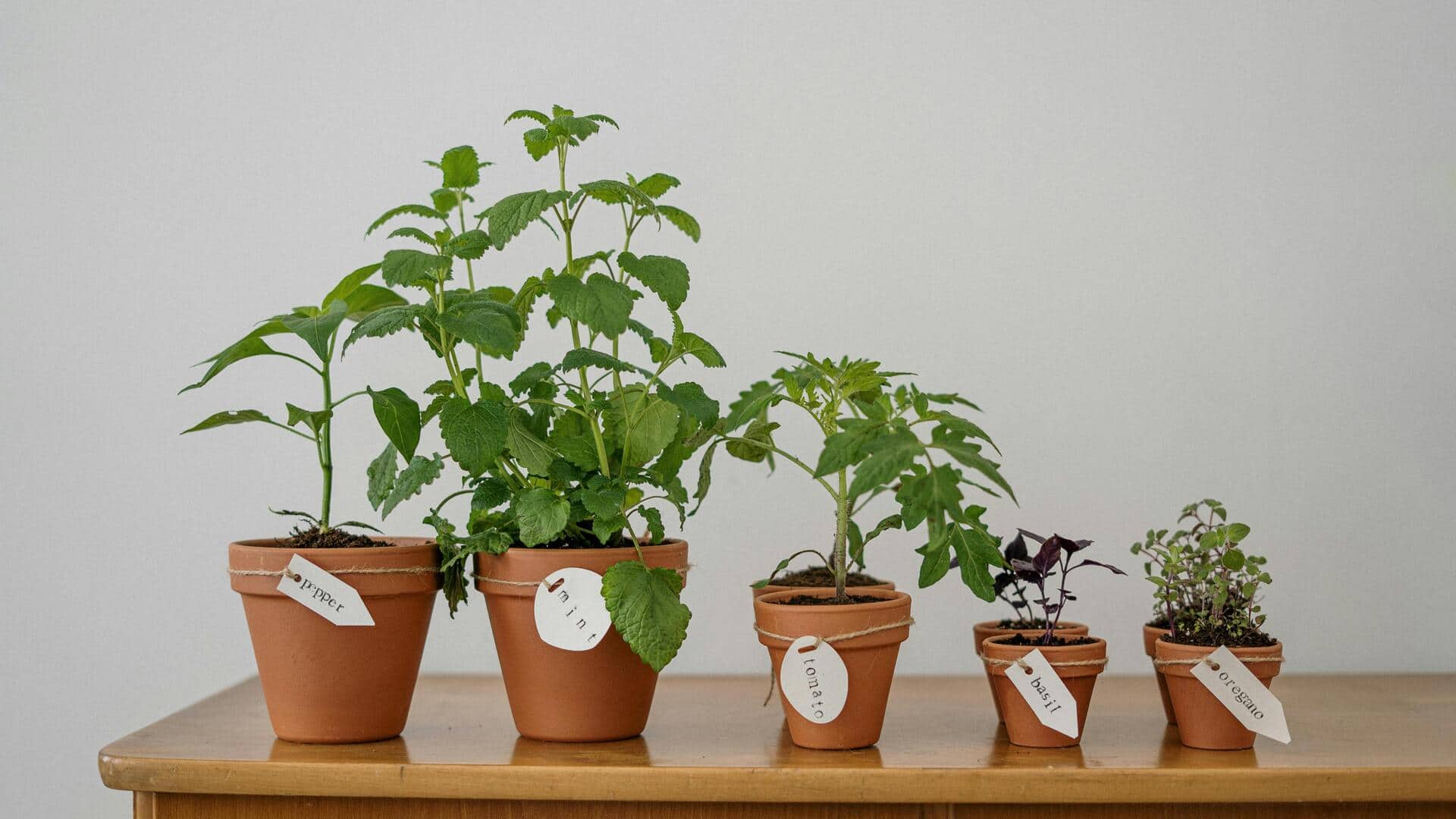
Indoor herb garden 101: 5 mistakes to avoid
What's the story
Growing herbs indoors can be a rewarding experience, providing fresh ingredients for your meals and a touch of greenery to your home. However, many beginners make common mistakes that can hinder their success. By understanding these pitfalls, you can ensure your indoor herb garden thrives. Here are five common mistakes to avoid when growing herbs indoors, along with practical tips to help you maintain a healthy and productive garden.
Tip 1
Overwatering your herbs
Overwatering is one of the most common mistakes indoor gardeners make. Herbs need well-drained soil, and too much water can lead to root rot. It's important to check the soil moisture before watering. Stick your finger about an inch into the soil; if it feels dry, it's time to water. Using pots with drainage holes also helps prevent excess moisture from accumulating.
Tip 2
Insufficient light exposure
Herbs require plenty of light to grow well indoors. A common mistake is placing them in low-light areas or not providing enough artificial light. Ideally, herbs should get at least six hours of sunlight every day. If natural light isn't enough, consider using grow lights to supplement their needs and ensure they get the right spectrum of light for healthy growth.
Tip 3
Using incorrect soil mix
Using regular potting soil without considering its suitability for herbs can be a mistake. Herbs thrive in well-draining soil with good aeration. A mix designed specifically for herbs, or adding perlite or sand to regular potting soil, can improve drainage and create an ideal environment for herb roots.
Tip 4
Neglecting humidity levels
Indoor environments often have lower humidity levels than what many herbs prefer, causing them stress and hindering growth. Noticing signs like leaf curling or browning edges? It could be due to low humidity levels. To remedy this, you can increase humidity around your plants by placing a humidifier nearby or setting trays filled with water near the plants.
Tip 5
Forgetting regular pruning
Pruning is essential to keep your indoor herb plants healthy and productive. It encourages bushier growth and prevents them from becoming leggy or overgrown. Regularly trim back any dead leaves or stems, and pinch off flower buds if they appear prematurely on culinary herbs like basil or mint. Doing so can affect flavor quality if allowed to bloom fully.